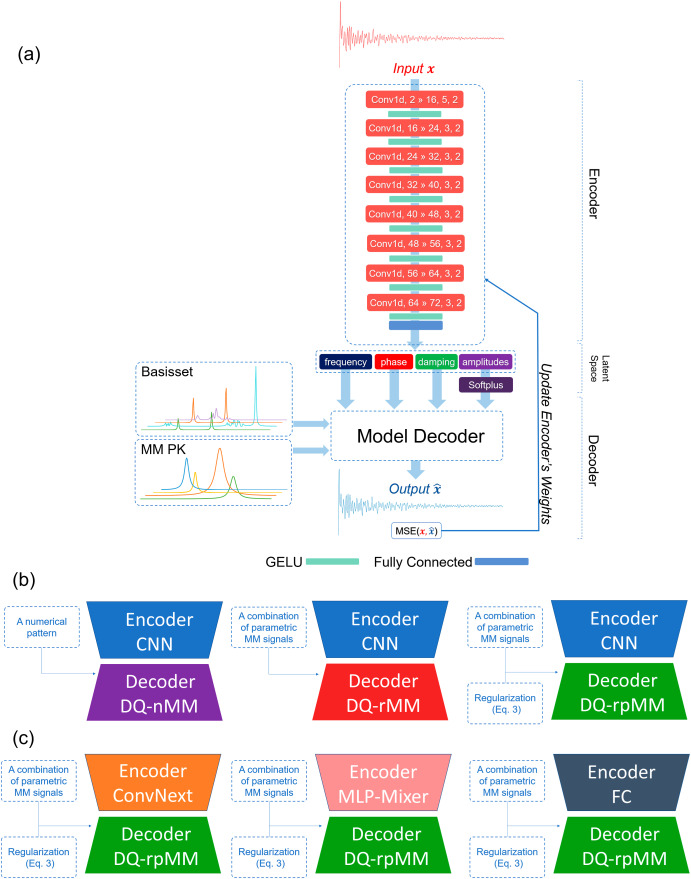
INSPIRE-MED INtegrating Magnetic Resonance SPectroscopy and Multimodal Imaging for Research and Education in MEDicine
–

We developed two unsupervised deep learning methods for FPC: a creatine-referencing approach and a spectral registration method. By integrating prior physics knowledge into their design, the physics-informed neural networks can be trained in an unsupervised manner with complex data. As a result, they provide efficient frequency and phase correction of large MRS datasets in significantly less time than needed with classical methods [1].
A novel self-supervised deep learning method enables accurate and fast analysis of magnetic resonance spectroscopy (MRS) and spectroscopic imaging (MRSI) data. Combining quantum-mechanics–based simulated metabolite responses with neural networks, this approach quantifies metabolite concentrations without the need for ground-truth fitted spectra. It also features an adaptive macromolecule fitting algorithm. The method, validated on both simulated and in-vivo human brain data, significantly reduces computation time, which makes it ideal for large datasets, including high-resolution MRSI. [2]